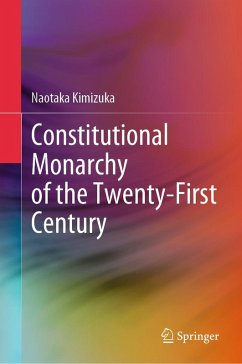This is the first book to investigate how constitutional monarchy could survive in the twentieth and twenty-first centuries, during which many monarchies were overthrown by revolutions or
coups d'état in Asia, the Middle East, Africa and Europe. Today we have about 200 countries in the world, but there are only 28 which have their own monarchical sovereigns - emperor, king, queen, grand duke, prince, sultan or emir - and even if we add the Commonwealth realms to these, we would find almost three-quarters of the globe are republics at this moment. So will monarchy disappear from human history in the not-too-distant future? This book shows how the European monarchs have played important roles not only as heads of state, but also as heads of nation, in which they are symbols of unity and national identity, of continuity and stability, fountainheads of national achievement and success, and supporters of social service. Consequently they have grappled with difficult contemporary issues such as social welfare, the global environment, the protection of wildlife, multiculturalism and the LGBT movement which national governments would not be able to deal with sufficiently in each country. This book also suggests reforming the existing emperor system of Japan in reference to the activities of European constitutional monarchy.
Dieser Download kann aus rechtlichen Gründen nur mit Rechnungsadresse in A, B, BG, CY, CZ, D, DK, EW, E, FIN, F, GR, HR, H, IRL, I, LT, L, LR, M, NL, PL, P, R, S, SLO, SK ausgeliefert werden.









